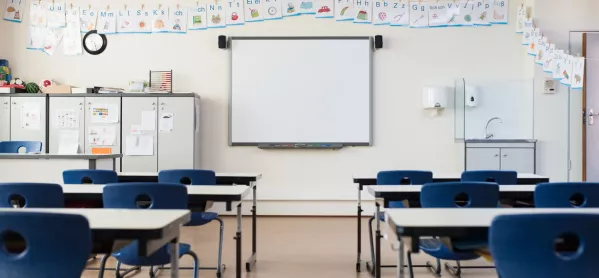The reopening of schools will create any number of challenges for school leaders across the country. And for those responsible for attendance, the issues have no easy answers.
Pre-pandemic, attendance was seemingly clear-cut - the law says that parents have to send their children to school. But below the surface, attendance has always been a difficult issue: there are myriad barriers to good attendance.
Now that attendance at school has become “optional”, these barriers have become infinitely more complicated.
Coronavirus: Making the right choices on school attendance
Attendance and pastoral teams will need to plan for managing common issues pertaining to attendance. Here are the three areas I am focused upon.
1. School is seen as too risky for the health and wellbeing of the child or their family members
Of all of the issues we may face, this is likely the most straightforward one: health comes first. For a lot of families, the risk presented by their child returning to school will be too much.
And rightly so, especially where students or their immediate families are vulnerable to Covid-19.
The government has confirmed that families will not face fines for this. However, pastoral teams will have to ensure that there is still support for these children, both academically and pastorally, especially where their health concerns mean that they are not having time with their peers.
The risk of isolation and loneliness is strong here. Schools might wish to look at safe, software-based approaches that can facilitate these children having some carefully controlled and curated contact with peers online, in something like Microsoft Teams.
2. Safeguarding
While there are family contexts where not attending school is absolutely the right thing, this can make safeguarding more difficult. It may also contribute to children being at risk.
Where schools have families with which staff are working hard to ensure that prior concerns are taken into account to try and keep children safe while they are out of school, not seeing children will make new or additional concerns difficult to work out.
There are no easy answers to this situation, but pastoral teams will have to work hard to ensure that there is regular, open contact with parents and students.
Crucial in this is the importance of the child’s voice. Pastoral leaders will need to ensure that there are systems in place for children to speak to trusted adults in confidence.
This may be over the phone, via electronic conversation or through a socially distant home visit by the right staff.
It’s vital that where children are not attending school, they still have mechanisms to use to contact trusted adults and share their worries, much as they would if schools were open as normal. Schools will need to ensure that they have safe opportunities for this.
3. Pastoral concerns
This may be the most challenging area for pastoral leaders. Given that there is now the freedom for parents to choose not to send their child in, this might mean that pastoral issues are hidden or unclear.
For example, a child’s non-attendance may be due to their anxieties about catching the virus or about not being able to see their friends. It’s absolutely vital that staff have discussions with families to explore the deeper reasons why a child may not be attending school.
This is important because support can be provided to help students access school more effectively. They might need some reassurances about what school may look like, or some information about the precise measures schools will have in place to best protect children from the virus.
It may also be the case that the student wants to return to school but that the parent has concerns that override the child’s wishes.
It’s vital that the voice of the child is heard. In cases like this, school staff can work with parents to allow them to share their concerns and for us to potentially reassure them.
Of course, parents’ wishes are important, but if there are steps that a school can take to support children in their wishes, this should be explored.
Amy Forrester is an English teacher and director of pastoral care (key stage 4) at Cockermouth School in Cumbria





